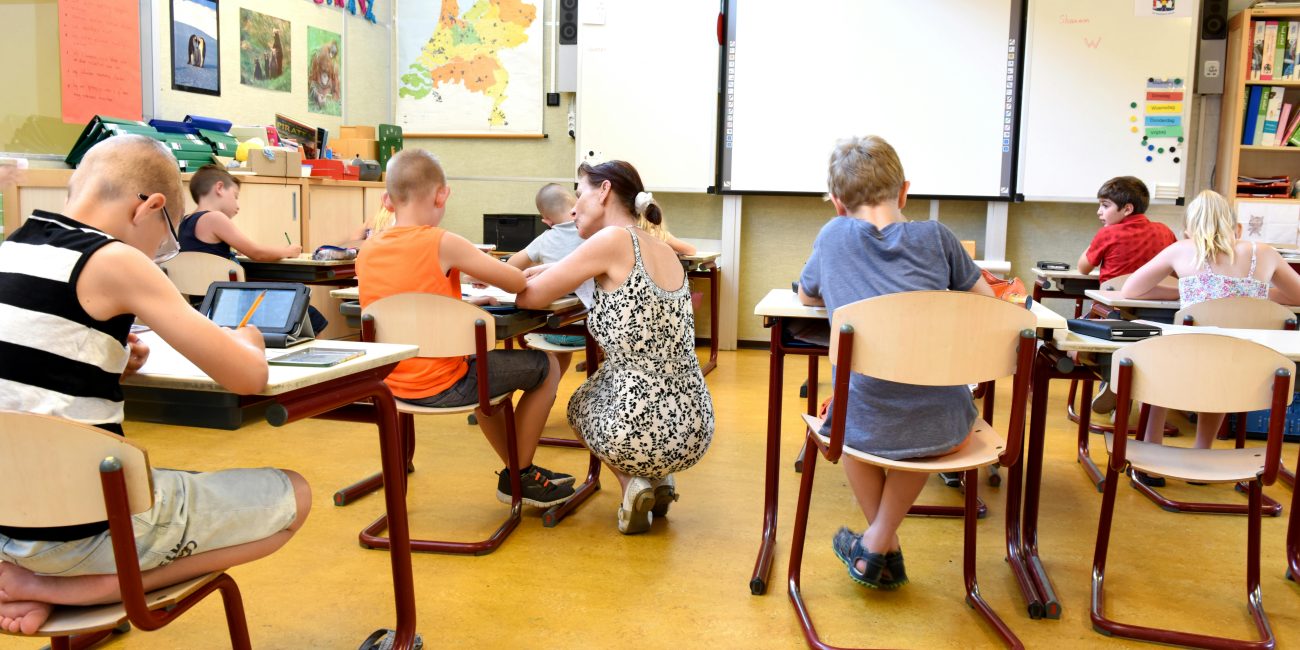After catching nine-year-old kids watching pornography on a tablet in the classroom, the director of a private school in the province of Valencia decided to prohibit all electronic devices from the centre. Although only a few students were engaged, 240 parents issued a statement requesting action, which was swiftly implemented.
School sources report a complete elimination of screens from their methodology, with their use limited to exceptional instances. This occurred in a primary school class where the instructor decided to use iPads kept in a closet for help in class, when a group of 9-year-olds searched for pornographic information in the classroom and during school hours. The mother of a student and “No More Screens” platform member downplays the situation, claiming it is a “completely isolated” incident. Furthermore, she claims that “my kid attends that class and didn’t notice.””This is the first time they’ve used a tablet in the classroom,” she said.
Access to the internet and porn
Nuria Sáenz, a gynaecologist and anti-screen use activist, notes that her main concern in this situation is the indiscriminate use of tablets that many children have at home. “We have one and we let them use it for very few hours a week, and we have controls that alert us at all times to what page they’re browsing,” she tells me.
For Sáenz, the issue is more with the parents than the school. “Parents who say their children don’t watch porn are like parents in the ’90s who said, ‘My son doesn’t drink.’ They do it secretly,” she says. In fact, she explains that most children’s first exposure to pornography occurs around the age of eight, precisely because these electronic gadgets have limitless access, She emphasises the necessity of avoiding it as long as possible. Most of the time, the initial interaction happens without conscious effort. In fact, a recent Save the Children study found that this is the case for seven out of ten young people.
This same survey criticises the fact that just one out of every four youngsters has limited time to use their cell phones. Primary school principals and teachers’ associations have been warning for years that an increasing number of 8- and 9-year-olds have mobile phones with internet access and that, despite keeping them turned off during class time, classroom conflicts are increasing, owing to what happens outside in chat rooms and on social media platforms.
An example at home
Although the Ministry of Education outlawed cell phone use in classrooms a year ago, the issue has shifted in a new direction. According to Sáenz, a member of No Mas Pantallas, parents should be attentive and limit their children’s exposure to these devices during childhood, especially if there are no limitations.
According to data from the National Statistics Institute’s (INE) Survey on Equipment and Use of Information and Communication Technologies in Homes, 69.8% of Valencian children and adolescents aged 10 to 15 owned a cell phone last year. More than 90 percent of them have an internet connection. This is although youngsters under the age of 16 should not use mobile phones.
The Ministry of Education recently announced findings from a study of 90,000 pupils. Although the findings are not conclusive, they do show that prohibiting cell phones in the classroom has considerably reduced instances of cyberbullying in schools.
Spend three times more time on the internet
According to a study undertaken by cybersecurity firm Kaspersky, Valencian children’s online activity has increased recently. In 2010, kids spent an hour per day in front of screens, and by 2020, the average exceeded three hours browsing. This period, according to the parents questioned, is shorter.
Furthermore, the survey suggests that parental behaviour is important in this regard, as 80% of parents spend less than two hours per day on devices, and so do their children. However, if adults use them for more than two hours every day, youngsters are equally likely to do the same. The study concludes that “parents are the best role models for setting and enforcing time limits on browsing.”








No Comment! Be the first one.